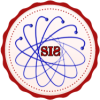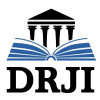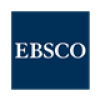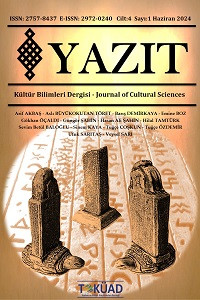Research Article
Translation
Book Review
Issue Editorial Board


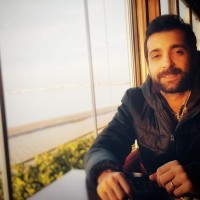
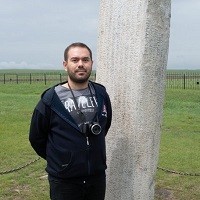

 Web
Web





Aim & Scope
YAZIT Journal of Cultural Sciences is a contemporary academy where current information, findings and evaluations on culture-oriented branches of disciplines that fall under the classifications of "humanities", "cultural sciences" and "social sciences" are presented and discussed; compatible with academic, ethical and scientific practices; It aims to be a platform that presents studies that are based on a qualified theoretical infrastructure, that have scientific objectivity, that contribute to local, national and international knowledge, and that, after effective, objective and transparent evaluation processes, open access to the service of the world public opinion.
YAZIT Journal of Cultural Sciences, among the fields classified as "humanity sciences", "cultural sciences", "social sciences" in the world academy, integrating with UAK Associate Professorship Fields and sub-branches presented below It includes studies such as original research, compilation and publication promotion in its field. In this respect, the publications to be sent to our journal should overlap with the fields presented below. No publication will be accepted to our journal outside of this field and sub-branches.
Basic Field of Philology: Contemporary Turkish Dialects and Literatures, Translation Studies, World Languages and Literatures, Ancient Languages and Cultures, Comparative Literature, Classical Turkish Literature, Turkish Language, Turkish Folklore, New Turkish Literature.
Basic Field of Social, Humanitarian and Administrative Sciences: Archeology, Atatürk's Principles and History of the Republic, Contemporary World History, Linguistics, Ancient History, Philosophy, Physical Anthropology and Paleoanthropology, General Turkish History, Medieval History, Ottoman Institutions and Civilization, Art History, Cinema, Political Thoughts, Political Life and Institutions, Political Science, Political History, Social Policy, Social and Cultural Anthropology, Sociology, Turkish Islamic Art, Contemporary History, Modern History.
Basic Field of Fine Arts: Traditional Turkish Arts, Music, Performing Arts, Cinema, Movable Cultural Heritage.
Basic Field of Theology: Philosophy and Religious Studies, Islamic History and Arts.
Author Guidelines
The studies which sent to be published in YAZIT Journal of Cultural Sciences should follow the steps below:
1. In order to send a study to the journal for publication, a personal subscription to the TÜBİTAK Dergipark system should made by the responsible author. In order to register on the Dergipark site, a user name and password are created by entering personal information in the windows opened from the link https://dergipark.org.tr/tr/login.
2. After the registration to the Dergipark system, the article submission process is started by using the "Submit Article" link of YAZIT Journal of Cultural Sciences at https://dergipark.org.tr/tr/pub/yazit.
3. YAZIT Journal of Cultural Sciences has adopted a publishing approach that complies with international standards and rules regarding "publication ethics", "research ethics" and "legal/special permission certification". In this respect, "Ethics Committee Document" should be uploaded to the system as additional files regarding studies that require an ethics committee document at the stage of uploading studies to the system. For studies that require an ethics committee certificate, see. (Ethical Principles and Publication Policy)
4. Obtaining permission from the owners for the use of scales, questionnaires, photographs belonging to others and stating this matter; It should be stated that copyright regulations are complied with for the intellectual and artistic works used.
5. Submission of articles to YAZIT Journal of Cultural Sciences is accepted as an application for publication. Authors of articles accepted for publication are deemed to have waived the copyright of their work. Copyright Transfer Form is included in the mandatory documents requested from the author(s) in the third step of the "Send Article" link and is located on the relevant page. If this form is not added as signed-scanned, the application will not proceed to the next step. You can also download the form by clicking this link: Copyright Transfer Form
6. Authors who submit articles to the journal are also required to submit their ORCID identification numbers, which they can obtain by signing up for free at orcid.org, to the editorial office along with the article texts.
7. Declaration of researchers’ contributions in articles with multiple authors; in addition, (if any) support and Acknowledgment (if any), declaration of conflicting interests should be included for each article. The COPE Supplementary Declarations form is among the mandatory documents requested from the author(s) in the third step of the "Send Article" link and is located on the relevant page. If this form is not added as signed-scanned, the application will not proceed to the next step. You can also download the form by clicking this link: Additional Declarations Form
8. All editorial work and transactions, double-blind referee evaluations and publication stages of our journal are carried out through the internet-based password protected TÜBİTAK Dergipark system; this gives quick access to authors, referees and editors. In this respect, you can follow all stages of your work uploaded to the system from the "User Panel", where you will enter your user name and password that you have created on Dergipark.
Studies to be sent to YAZIT Journal of Cultural Sciences are expected to be sent in accordance with the following writing rules:
A) FORMAT RULES
B) TEXT RULES
Title: Turkish title in bold and capital letters, 10 pt, centered; The English title, on the other hand, should be just below the Turkish title, normal, only the first letters should be capitalized, 10 pt and centered. The title of the article should be no more than 12 words.
Author Informations: The author's name and surname should be justified to the right, bold 10 pt. The title of the authors, their institutions and their e-mail addresses should be given in the footnote with a "*". Before the review process, this names and other informations about author(s) is removed by the secretariat unit and the manuscript is sent to the referees in an anonymous form. This informations will be added by the editorial unit at the publication stage after the refereeing processes of the studies are completed.
Abstract: After the Turkish and English title of the article, the abstract in Turkish and English, consisting of at least 150 and maximum 250 words, and Turkish and English keywords of at least 5 words should be written in 9 points. The abstract should give an idea about the scope, purpose, method, effects and results of the study. Maximum attention should be paid to the limit on the number of words related to the abstract.
Other considerations: For articles that use a special font, the font used should also be sent with the article. Details such as page numbers, headers and footers should not be included in the articles. In terms of spelling and punctuation, the Spelling Guide of the Turkish Language Association should be taken as a basis, except for special cases necessitated by the article or subject. No other alphabet characters other than the Latin alphabet should be used in the bibliography of the manuscripts.
All information about the article and the authors (authors' name, surname, title, institution, contact information, whether the article requires an ethics committee document, financing, support and acknowledgment, possible conflicts of interest and the relationship of the article with a presentation such as a thesis-statement etc.) etc.) should be clearly stated in the COPE Supplementary Statement form, which is signed and prepared by the author(s) during the upload to the system. This information will be added to the text by the editorial unit during the publication of the article.
C) REFERENCE RULES
For explanations that are not deemed appropriate to be included in the text, under-page footnote method should be used and these notes should be listed as 1, 2, 3 in the text. Footnotes should be written with the same font, 9 points and single line spacing. If archival documents are used in the text, references to these documents should be specified as (Document-1) or (Archive-1) in order, and archive document information should be written in front of the relevant phrase in the bibliography.
If the information received from oral sources is included in the text, the references should be stated as (SP-1) meaning "Source Person", and the information of each source person should be stated under the sub-heading of "Verbal Resources" in the references section of the study in accordance with the reference code made in the text.
If information from internet sources is included in the text, references should be stated as (URL-1, URL-2...) In this respect, it should be preferred to clearly present the link and access date information in the bibliography, by specifying the electronic resources such as social media sharing-posts, blog posts, videos that do not specify page numbers as URL-1, URL-2...
Emphasis should be placed in quotation marks, titles of books in italics, and titles of articles and papers in double quotation marks. More than five lines of quotations, one line below, without quotation marks and without paragraph breaks, 0.75 cm in block form must be started from within.
Editing the Bibliography
In the bibliography, only the references in the article should be included and alphabetical order should be followed according to the surname of the author.
If more than one work of an author will be included in the bibliography, they should be sorted according to the publication date from oldest to newest. For studies made in the same year, the phrases "a, b, c..." should be used and they should be the same for references made in the text.
Book
Electronic Version of a Printed Book (E-Book)
Dinç Mustafa (2019). Kemal Sunal Filmlerinde Folklor ve Mizah. [Electronic Version]. İstanbul: Hiperlink Yayınları. https://www.hiperkitap.com/kemal-sunal-filmlerinde-folklor-ve-mizah
Translated Book
Sartre, Jean-Paul (1967). Edebiyat Nedir? Trans. Bertan Onaran. İstanbul: De Yayınevi.
Book Chapter
Dinç, Mustafa (2020). “Türkülerin Başına Gelenler: Politik-İdeolojik Sebeplerle Değiştirilen Türküler Üzerine”. folklor/edebiyat, 26(103): 483-508.
Dissertation
Dinç, Mustafa (2018). Kemal Sunal Filmlerinde Folklor ve Mizah. Doctoral Dissertation. Uşak: Uşak University, Graduate School of Social Sciences.
Proceeding
Yolcu, Mehmet Ali (2018). “Bacılar ve Kardeşler: Toplumsal Yapı ve Söylem Açısından Alevi Ataerkilliği”. International Social Sciences Symposium of Motif Foundation (Çanakkale, 8-10 November 2018). İstanbul: Motif Foundation Pub., 66-69.
Newspaper Articles with Known Authors
Bortaçina, Azer (2000, 3 July). “Adalı Olmak Özveri İster”. Milliyet Yaşam, 4.
Newspaper Clippings or News by Unknown Author
Cumhuriyet. (1991, 21 October). “Halkın kararına saygı duyulur”, 1.
Electronic Sources
Cinema Movies
Oral Sources
SP-1: Mustafa Dinç, Born in 1984, PhD, lecturer, Çanakkale. (Interview: 12.06.2014).
Ethical Principles and Publication Policy
ETHICAL PRINCIPLES
Publication processes of YAZIT Kültür Bilimleri Dergisi (YAZIT Journal of Cultural Sciences) are based on the objective production, development and sharing of information by scientific method. Refereed articles are studies that ensure the application of the scientific method and impartiality. All components of the publication process in the realization of scientific production; publishers, editors, authors, reviewers and readers must comply with ethical principles. In this context, the publication ethics of YAZIT Kültür Bilimleri Dergisi (YAZIT Journal of Cultural Sciences) and the open access policy are also in line with the guidelines and policies published by the Committee on Publication Ethics (COPE) in open access (COPE Code of Conduct and Best Practice Guidelines for Journal Editors) require that all components of the publishing process comply with ethical principles. If situations such as manipulating, distorting, and using fabricated data are identified in the articles, this situation the article will be rejected. Our journal has the right to request the output files related to the results of the analysis according to the responses given by the editorial board and / or referees.
Ethical Principles for Editorial Board
1. The Editorial Board of the journal is responsible for every article applied to the journal, and even for all processes after its publication. This responsibility is only by considering the public interest in decisions about issues related to the journal; it requires independent decision-making without thinking about personal gain. The relationship between the publisher and the editorial board is based on the principle of independence, all decisions taken by the editorial board are independent from the publisher and other persons and organizations.
2. The Editorial Board strives to continuously improve the journal and to increase the quality of its publication.
3. The Editorial Board ensures the determination and implementation of journal policies such as publication, blind review, evaluation process and ethical principles.
4. The Editorial Board protects the copyrights of article authors published in the journal.
5. The Editorial Board is responsible for taking measures related to intellectual property rights, scientific-unethical behavior, plagiarism in the article and journal publishing process.
6. The Editorial Board prepares an “Author Guide” containing the information requirements of the author (s), and updates this guide when necessary.
7. The Editorial Board determines policies that encourage referees, author (s).
8. The Editorial Board keeps the records of each article and the correspondence related to the journal electronically or in print.
Ethical Principles for Editors and Co-Editors
1. When deciding on the suitability and publication of the articles submitted, the editors decide according to the journal's publication policy and scientific principles, not according to factors such as the author's or author's race, gender, belief, and nationality.
2. Editors strive to meet the information needs of referees, authors, researchers, practitioners and readers, to provide feedback when necessary, to act according to the principles of clarity on issues requiring correction and explanation during the publication process.
3. While deciding on the publication of the articles, the editors pay attention to the authenticity of the articles and to contribute to the scientific literature, readers, researchers and practitioners. While making positive or negative decisions about the articles, the editors take into consideration the original value of the articles, their contribution to the field, the validity and reliability of the research method, the clarity of the narration and the purpose and scope of the journal.
4. Editors take the preliminary evaluation stage, and consider the positive referee's suggestions, unless the submitted articles have a major problem.
5. Editors base confidentiality on transaction steps and cannot share personal information with referees and third parties. The editors apply the blind review and evaluation process policies, which are among the publication policies of the journal, keep the identity information of the referees confidential, and ensure that each article is evaluated objectively and within due time.
6. The editors submit the articles considering the expertise areas of the referees and support the independent and independent evaluation. Editors consider whether there is a conflict of interest-interest union between editors, reviewers, and author (s) for unbiased evaluation of the article. Editors block unscientific reviews that do not comply with academic etiquette.
7. The editors are looking for a wide range of referees and to be constantly updated.
8. The editors ensure that the journal publishing processes are operated in accordance with the publication policies and guidelines, and the task officers in the process inform the developments about the publication policies.
9. Editors ensure the protection of personal data in the reviewed articles; they protect the individual data of the author, referee and readers.
10. Editors pay attention to the protection of human and animal rights in the articles, they care about documenting the explicit consent of the participants of the article, the ethical committee approval regarding the participants of the article rejects the article when they do not have permission in experimental research.
11. Editors; they take action against abuse of duty. When there are complaints about abuse of duty, he makes an objective investigation and shares the findings on the subject.
12. Editors provide correction of errors, inconsistencies or misleading in articles.
13. The editors protect the intellectual property right of the published articles and, in case of violation, defend the rights of the journal and the author (s). In addition, they take necessary measures to prevent the content of published articles from violating the intellectual property rights of other publications; perform the authenticity-similarity check.
14. Editors check the articles in the journal for compliance with ethical principles. Plagiarism, slicing, duplication, use of fake data, unfair authorship etc. by Editorial Board or referees. If ethical violations are detected, the editorial process is stopped and the application is rejected by giving the reason. Editors are primarily responsible for the plagiarism screening of articles submitted for publication.
15. It is the editors' responsibility to complete the preliminary examination, refereeing, editing and publishing processes of the articles submitted to the journal in a timely and healthy manner.
16. Editors take into account consistent criticism of articles published in the journal, granting the right to respond to the author (s) of the criticized articles.
17. Editors review complaints submitted to the journal and make necessary explanations.
Ethical Principles for Referees
1. Referees act with the awareness that they are the most basic determinant of the academic quality of the article to be published in the journal and are primarily responsible for evaluating with the responsibility of increasing academic quality.
2. The referees must accept the refereeing of articles that they only have the expertise necessary to make an appropriate assessment, they can comply with the blind referee confidentiality and keep the details of the article confidential in all ways.
3. Referees cannot share the information and evaluation results they have received regarding the studies they evaluated with third parties. Referees work to be impartial, fair and constructive according to journal publication policy and writing rules.
4. Referees should only evaluate the accuracy of the content of the articles and their compliance with academic criteria. The fact that the thoughts expressed in the article are different from the thoughts of the referee should not affect the evaluation.
5. If the referees are unable to evaluate the article sent to them within the specified time, or if there is a situation that requires them to feel inadequate in the articles sent to them, they should inform the editors.
6. Referee reports should be objective and restrained. Insulting, condescending and accusing statements should definitely be avoided.
7. Referees should avoid superficial and ambiguous statements in the evaluation reports. In evaluations with negative results, missing and flawed issues based on the result should be concretely demonstrated.
Ethical Principles for Authors
1. It is the author's responsibility to include the manuscripts that are submitted to the journal to contribute to the field of science.
2. The authors are responsible for the studies they submit to the journal to comply with the journal's publication policies, ethics and writing rules.
3. Authors should show the necessary sensitivity for those situations in their works, such as originality, scientificity and the use of data that would require copyrights of other works.
4. The work sent to the journal should not have been published / accepted in any other journal before.
5. It should be ensured that other authors with names in the studies have contributed to all stages of the research. Adding people who have no contribution to the study as a writer is contrary to scientific ethics.
6. Citations and showing references of the manuscripts submitted to the journal, should be complete and correct.
7. For studies on animal, environment and human beings, Ethics Committee Document is requested for researches that require the protection of personal information.
8. Although the studies sent to the journal will be screened for plagiarism, the responsibility and results on this matter are completely under the responsibility of the author.
9. It is the authors' responsibility to ensure that every study to be submitted to the journal complies with the Higher Education Council Scientific Research and Publication Ethics Directive.
10. Authors are responsible for retracting and correcting errors if detected.
11. Information on financial support should be provided by the authors.
12. The reference list should be provided by the authors.
13. Authors must declare any potential conflicts of interest.
Publication Malpractice Statement, Involvement and Cooperation in Investigations
In case of an unethical situation in the course of behavior or evaluation that does not comply with the ethical principles regarding editors, referees, authors in the journal, an article in the form of an early view or published article should be reported to the address of mustafadinc@comu.edu.tr. After this notification, the editorial board convenes for the relevant complaint and the final decision is made within a reasonable time based on COPE guidelines. Every reported unethical publishing behavior is investigated, even if discovered years after publication.
Ethics Committee Document
The journal has adopted the understanding of publication in accordance with international standards and rules regarding “publication Ethics”, “research Ethics” and “obtaining a legal / special permit document”.
1. Researches requiring the Ethics Committee's permission are as follows:
2. Any research carried out with qualitative or quantitative approaches that require data collection from participants using survey, interview, focus group work, observation, experiment, interview techniques,
3. Use of humans and animals (including material / data) for experimental or other scientific purposes
4. Clinical researches on humans,
5. Researches on animals,
6. Retrospective studies in accordance with the Law on Protection of Personal Data,
Also;
In case reports, it was stated that “Informed consent form” was taken; obtaining permission from the owners for the use of scales, surveys, photographs of others and specifying this issue; It should be noted that the copyright regulations are complied with for the ideas and works of art used. Before 2020, research data has been used, produced from postgraduate / doctorate studies (should be stated in the article), a previous ethical committee permit is not required for articles submitted to the journal in the previous year, accepted but not yet published.
Researchers who are not members of the university can also apply to the Ethics Committees in their region.
Additional Statements
At the end of articles with multiple authors; researchers' contribution rate statement; in addition, support and acknowledgment statement (if any), declaration of conflicting Interests should be included for each article. See. (Author Guidelines)
Fundamental Errors in Published Works
When an author discovers a significant error or inaccuracy in his/her own published work, it is the author’s obligation to promptly notify the journal editor or publisher and cooperate with the editor to retract or correct the paper. If the editor or the publisher learns from a third party that a published work contains a significant error, it is the obligation of the author to promptly retract or correct the paper or provide evidence to the editor of the correctness of the original paper.
PUBLICATION POLICY
1. The journal is a non-profit, "legal entity" publishing initiative under the Toplum ve Kültür Araştırmaları Derneği (Society and Cultural Studies Association). The journal is a scientific refereed journal published two times a year in the form of open access on the TÜBİTAK Dergipark platform, in June and December. Additional issues or special issues can be published with the decision of the Editorial Board.
2. In the journal, there are research or review articles, translations, book review, letter to the editor-type studies related to cultural sciences such as folklore, language, history, literature, anthropology, history of religions, and sociology.
3. The publication language of the journal is Turkish and English.
4. Editorial Board has the right to make corrections, to publish or not to publish the articles.
5. All legal responsibilities regarding the content of the articles published in the journal belong to the author.
6. Manuscripts submitted to the journal should not be published elsewhere or sent for publication. Oral reports that are not published in full text or articles produced from the thesis can be published as long as this is explained in the footnote.
7. The journal supports the open access policy. Each article published in the journal allows readers to read, download, copy, distribute, print, search or link to their full text, provided they are non-commercial.
8. Turkish and English abstracts consisting of minimum 150 and maximum 250 words at the beginning of the article, Turkish and English keywords with 5 words; Turkish and English (secondary language) title should be included. The summary should be of an opinion about the scope, purpose, method, effects and results of the study.
9. Manuscripts are sent by becoming a member through the "Submit Article" tab at https://dergipark.org.tr/kulturder. The referee process can be followed by logging in on the same page.
10. Authors who submit articles to our journal must submit their ORCID ID numbers, which they will obtain by signing up for free, from orcid.org, along with the article texts to the editor.
11. Manuscripts should be sent in accordance with the stated principles. Manuscripts sent in a way that is incompatible with the principles and editorial guidelines are rejected after the Editorial Board review.
12. It is given to a maximum of 25 articles in each issue of the journal. A maximum of 27 articles are included with the publication presentation / criticism and translation type studies. Articles that are translation or publication / criticizing are not subject to the same evaluation process as research articles.
13. Research or review articles should be no more than 10,000 words, including abstracts, graphs, tables, visuals and appendices.
14. Articles submitted to the journal are subject to double-blind peer review. The articles sent to the expert referees to be determined by the Editorial Board and / or the editors are taken into the publication process after the final decision of the editors in line with the referee reports.
15. The articles published in our journal abide by research and publication ethics. Reference is made to "COPE Core Practices" in this subject.
Transparency Policy
YAZIT Kültür Bilimleri Dergisi (YAZIT Journal of Cultural Sciences) undertakes to abide by the "Principles of Transparency" prepared in partnership with COPE / DOAJ / OASPA / WAME.
Charge Policy
There is no charge for authors or readers under the name of application, review, reading or publishing in the journal.
Archiving
This journal utilizes the LOCKSS system to create a distributed archiving system among participating libraries and permits those libraries to create permanent archives of the journal for purposes of preservation and restoration.
Article Evaluation Period
Article reviews; It is finalized in 90 days about including pre-control, refereeing and regulation processes. Manuscripts, which evaluation processes ended positively, are put in publication queue.
Correction and Withdrawal Processes
Authors should complete these corrections within 10 days when referees request corrections for articles. In the pre-control stage, the authors can withdraw their articles if they wish.
Price Policy
In YAZIT Journal of Cultural Sciences, no fee is charged from the authors or readers under the name of "application", "review", "reading" or "publishing" fee.
Indexes
Other Indexes
Journal Boards
Editor

Section Editors







 Web
Web
Editorial Board


Hikmet Guliyev was elected as the Director of the Institute of Folklore of the Azerbaijan National Academy of Sciences (ANAS) in 2025.
In 2015, he successfully defended his PhD dissertation titled “The Wise Old Man Archetype in Azerbaijani Folklore.”
In 2018, he earned the title of Associate Professor in the field of folklore studies.
In 2024, he successfully defended his Doctor of Science dissertation in Philology titled “Internet Folklore: Theoretical-Methodological Context and Folkloric Meaning-Making.”
He is the author of six books and around 60 scholarly articles published both domestically and internationally, and he has participated in numerous national and international conferences. Four of his articles have been published in journals indexed in Web of Science and Scopus.

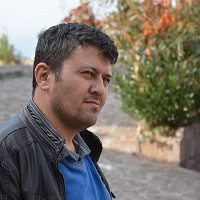

I graduated from the Department of Turkish Philology at Shumen University in 1997. Since 2000, I have been teaching and conducting academic research at the Department of Turkish Language and Literature at Shumen University. I received my PhD in 2018 with my thesis entitled "Contemporary Turkish Legal Terminology". In 2022, I obtained the title of Associate Professor with my monograph entitled "Polite Expressions in Turkish: Words of Address, Greeting, and Farewell". Since 2001, I have authored 11 books related to the teaching of Turkish in schools and universities. I have also contributed to 12 dictionaries in Bulgarian-Turkish and Turkish-Bulgarian languages, covering various fields from commerce to law, gastronomy to the plant kingdom. I have edited books used in elective Turkish language courses in Bulgaria.




 Web
Web






